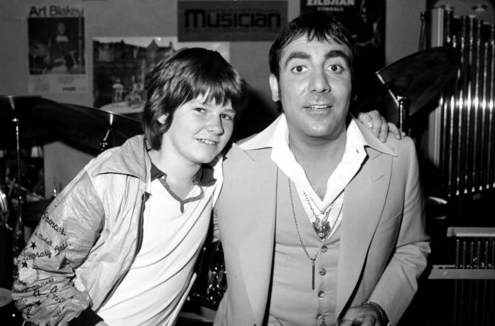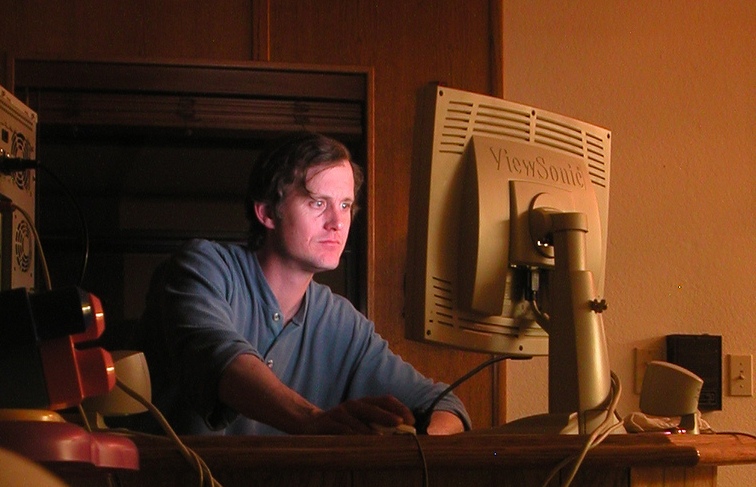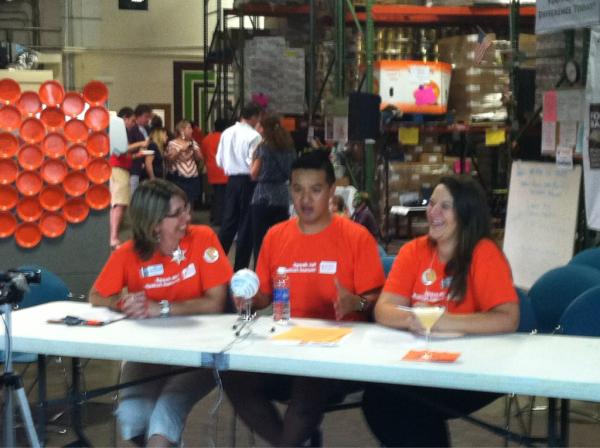Right now, today, in 2016 is the best time to start up.
There has never been a better day in the whole history of the world to invent something. There has never been a better time with more opportunities, more openings, lower barriers, higher benefit/risk ratios, better returns, greater upside than now.
Right now, this minute.
This is the moment that folks in the future will look back at and say, “Oh, to have been alive and well back then!”
(Kevin Kelly, from his book, The Inevitable: Understanding the 12 Technological Forces That Will Shape Our Future)
Let’s not blow our chance.
In the association community, we’re always playing catch up to the world around us. Webinars and conference sessions focus on challenges, problems to solve, outside forces and disruption. Depending on who’s talking, it can be a downer, frankly.
I get it—limited resources, too many priorities, a sense of overwhelm and the old not making room for the new (you interpret that however you wish).
Here’s the thing: the future should inspire us, not depress us. The future is calling us.
Come to the rescue of young adults and lifelong learners
If you need a little inspiration—the kind that makes you feel blessed “to have been alive and well back then”—read The Association Role in the New Education Paradigm, a white paper from Elizabeth Engel, CAE and Shelly Alcorn, CAE.
You may know these two: Elizabeth is CEO & Chief Strategist of Spark Consulting LLC and Shelly is Principal of Alcorn Associates Management Consulting. Maybe you’ve seen them speak at a conference or webinar, read their blogs or even worked with them. This paper is one in a series that Elizabeth has written with other smarty pants in our community.
So what’s their paper all about?
“Our thesis is that the association community has a vital role to fill in addressing the needs of both workers and employers in the coming decades, in helping to bridge the gap from education to employment.”
I imagine a lot of heads nodding in agreement. But how many associations merely pay lip service to that part of their mission? How many of them actually do something about it? How many find new ways to help people develop the learning habits and the personal and professional skills they need for existing and future jobs? Their paper introduces you to a few associations that are stepping up to this challenge.
Unlike many industry reports, this paper shows associations the role they can play in solving a serious issue, one that affects everyone reading this.
Many of us came of age at a time when change didn’t happen as intensely as it does now. We had time to hone skills, acquire knowledge and progress in our careers. But now, I don’t think any of us can imagine how much our world and our place in that world will change in the next five or ten years. The way we work will change. The way our members and customers work will change. What we need to learn and know to make a living will change.
How will you keep up your skills and remain employable (relevant)? How will your children, grandchildren or the young people you see every day in your town or city prepare for the future of work? How will your members and future members? Don’t say college.
The sad state of higher education
Unless colleges change how they do business, they won’t be the answer for long, except for a small percentage of kids. This paper provides many depressing statistics about the ROI of college—stats that no longer surprise anyone who knows recent graduates and the debt that clouds the choices they make in life.
When I went to college, a middle class kid could afford a four-year liberal arts education at a great school. My parents and I took out loans to make it work. Plus, I worked several shifts a week as a waitress and bartender to cover the rest of my tuition plus rent and other expenses. What I didn’t realize then was my work experience in the restaurant and bar scene of Washington DC would be just as valuable as the hours I spent writing papers and studying for exams—the soft skills I was acquiring were just as important as the industry knowledge.
I wasn’t burdened by a huge debt when I graduated. I could afford my monthly loan payment on a measly restaurant manager salary and paid it off in ten years. Unlike many kids graduating today, I could afford to do what I loved even though it didn’t pay much. I’m thankful for my history degree because it trained my mind and sparked a love for learning that’s never left me and never will.
But how many kids today can afford to study what they love if what they love is literature, history or some other liberal arts program? Not many, not at the prices charged by universities today. If the cost of a college education is going to saddle you with crazy amounts of debt, you better prepare yourself for a career that gets you to six figures fast.
Elizabeth and Shelly point out the disconnect between employers and colleges on the value of a college education:
“Employers, education providers, and youth live in parallel universes…Fewer than half of youth and employers, for example, believe that new graduates are adequately prepared for entry-level positions. Education providers, however, are much more optimistic: 72 percent of them believe new graduates are ready to work.”
Imagine a 21st century college curriculum
In the paper, Tom Hood, CEO of the Maryland Association of CPAs, said, “College programs are missing the success skills that are increasingly required earlier in young professionals’ careers.” If you were to reinvent the college experience so it truly prepared people for a productive life in a changing world, what would the curriculum look like?
Here are some of the courses I’d require:
- Strategic thinking and goal-setting
- Communication: interpersonal, public speaking, writing and digital/social media
- Soft skills to improve social and emotional intelligence (EQ)
- Research skills
- Data analytics: Google’s chief economist said the ability to understand, visualize and communicate data will be “a hugely important skill in the next decades.”
- Financial management, both personal and business
- Project management and team dynamics
Not your typical classes, I know, but they’re the life skills people need to develop personally and professionally. Some adults don’t learn them until far too late in their career, some never do. Give students the tools they need to be successful, productive and healthy adults.
I wouldn’t leave out liberal arts. Reading and discussion groups can help people develop an appreciation for the arts, analysis and communication skills, and a sense of history (something sorely lacking today), plus expose them to other historical and contemporary cultures and perspectives.
Supplement this curriculum with specialized classes that train people to enter an industry or profession. Colleges should partner with businesses, start-up incubators, nonprofits and associations to design the curriculum. These partners can share what people in their industry or profession should have learned or what they will need to learn.
Colleges must change dramatically. They need to offer a relevant, dynamic curriculum—accreditation requirements hold them back now from responding quickly enough to market (and student) needs.
Break up the typical four-year enrollment period. Every 12 to 18 months, give students the opportunity to go out into the workforce to try out different types of work. When they return to their studies, they’ll have a better appreciation for what it takes to succeed in life.
Rethink the college experience
Thanks to MOOCs, many people around the world are patching together a college-level education by taking classes from Brown, Penn, UVA, Harvard and other respected universities. Students design their own curriculum using online education.
What if organizations, like associations, help people put together a curriculum from various online sources such as MOOCs and associations? You could select the most qualified subject matter experts—it wouldn’t matter where they live because everything is online. You could help organize local study and discussion groups around the country to provide an in-person social learning element.
Design this educational experience and offer it for a fee that covers curriculum design, individual online counseling, mentor-matching and group online coaching. I bet it would be a heck of a deal compared to traditional college tuition.
You don’t have the resources? Do what colleges and startups do: go after the money—venture capital, grants and endowments. Partner with the big names in your industry—they’ll benefit from the pipeline of talent you send their way, plus they get to help design the curriculum and develop their future workforce.
Not practical? Maybe, maybe not. Who cares right now? Here’s the thing: you need to start envisioning different futures. Then start figuring out the little steps you can take now that might move you toward one of those futures. Why can’t you design this future for your association and industry?
Don’t nit-pick. Focus on what you could do, not on what you can’t. Fill the gap. You can bet that venture capital will continue to be invested in education. How long will it be before it enters your market? Be ready to partner with others so you can continue to influence the future of your industry, not be left on the sidelines.
Here’s the first thing you can do: read Elizabeth and Shelly’s paper. It’s sure to inform and inspire you to start thinking about how you and your association can change the world—isn’t that your mission?
Creative Commons licensed photo by Lee Roylland.







